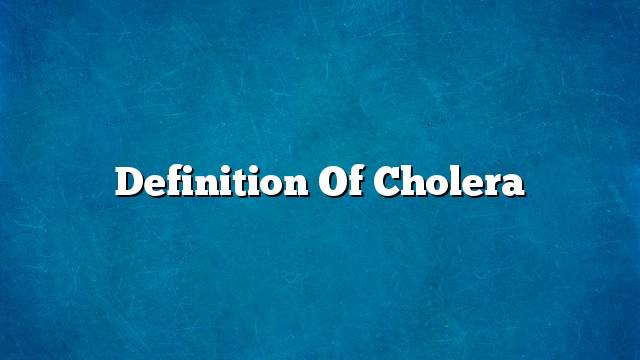Definition of cholera
It is a contagious gastrointestinal disease caused by bacteria that work on the production of intestinal toxin. These bacteria are transmitted by food and drink contaminated with cholera bacteria. These bacteria are transmitted from cholera to others, called cholera or cholera.
Cholera is one of the most deadly diseases of the patient. The patient may die after three hours of the disease if he is not given the necessary medical treatment because it reduces blood pressure within an hour of infection and causes severe diarrhea which causes dehydration. Treatment for the patient is either oral or intravenous if the conditions are serious.
The most common areas of cholera are parts of Africa, South Asia, and Latin America due to famine, poor sanitation, overcrowding and war.
Causes of cholera
- Eat or water contaminated with cholera bacteria.
- Eat partially or uncooked shellfish.
- By stools in infected areas.
- Vegetables and fruits washed with sewage.
Symptoms of cholera
- A severe diarrhea occurs without the sensation of colic and the color of the stool is yellow and white.
- After diarrhea, vomiting occurs and the color is initially yellow and then turns green and then becomes white and each time the amount of vomit increases the time that preceded it.
- Excessive thirst due to vomiting and severe diarrhea.
- Decreased blood circulation due to drought.
- Contractions in the chest, abdomen and limbs.
- Urinary retention stopped due to lack of urine.
Cholera neglect leads to complications such as renal failure due to obstruction of the urine and intestinal paralysis, especially in children and coronary artery blockage, especially in adults of old age.
How to prevent cholera
- Avoid eating foods from popular areas where health conditions are not available.
- Stay away from liquids and drinks from places that are not reliable.
- Water sterilization There are two ways to sterilize it either by boiling water or using sterilization pills.
